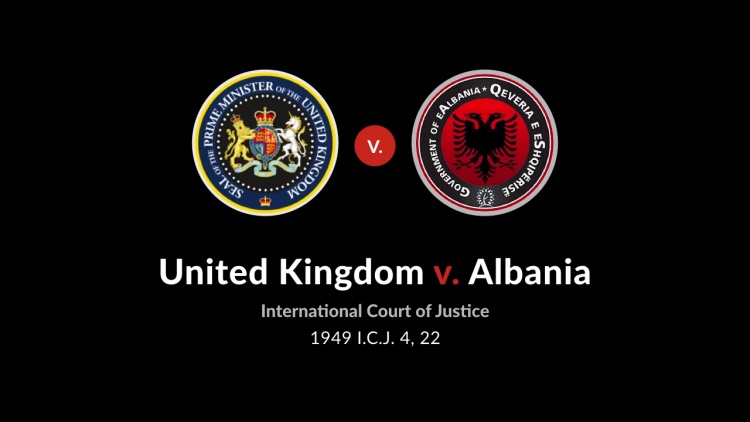Corfu Channel Case (United Kingdom v. Albania)
International Court of Justice
1949 I.C.J. Rep. 4, 29-35 (Judgment of April 9, 1949)
- Written by Megan Petersen, JD
Facts
On May 15, 1946, two British ships passed through Albania’s North Corfu Channel where they were fired at by an Albanian battery. Following this incident, the United Kingdom (plaintiff) and Albania (defendant) entered into diplomatic discussions about the right of British ships to pass peacefully through Albanian waters. Albania maintained that the ships should not pass through without providing prior notification to the Albanian government. However, the United Kingdom maintained it had a right under international law to innocently pass through the straits. Between May 15, 1946 and October 22, 1946, the Albanian government allegedly placed mines in the Corfu Channel in Albanian territorial waters. Albania was at war with Greece, and the mines were allegedly part of its defense. On October 22nd, British warships attempted to again pass through the straits, but were destroyed by the mines, with loss of human life. The United Kingdom brought suit in the International Court of Justice (ICJ) on the ground that Albania had a duty to warn the approaching British ships of the mines. It sought damages from Albania. However, Albania argued that its territorial rights had previously been violated by the British ships passing through its straits on May 15, 1946, and that it was entitled to a satisfaction.
Rule of Law
Issue
Holding and Reasoning ()
What to do next…
Here's why 910,000 law students have relied on our case briefs:
- Written by law professors and practitioners, not other law students. 47,100 briefs, keyed to 997 casebooks. Top-notch customer support.
- The right amount of information, includes the facts, issues, rule of law, holding and reasoning, and any concurrences and dissents.
- Access in your classes, works on your mobile and tablet. Massive library of related video lessons and high quality multiple-choice questions.
- Easy to use, uniform format for every case brief. Written in plain English, not in legalese. Our briefs summarize and simplify; they don’t just repeat the court’s language.





